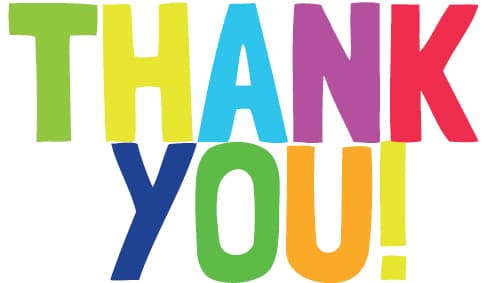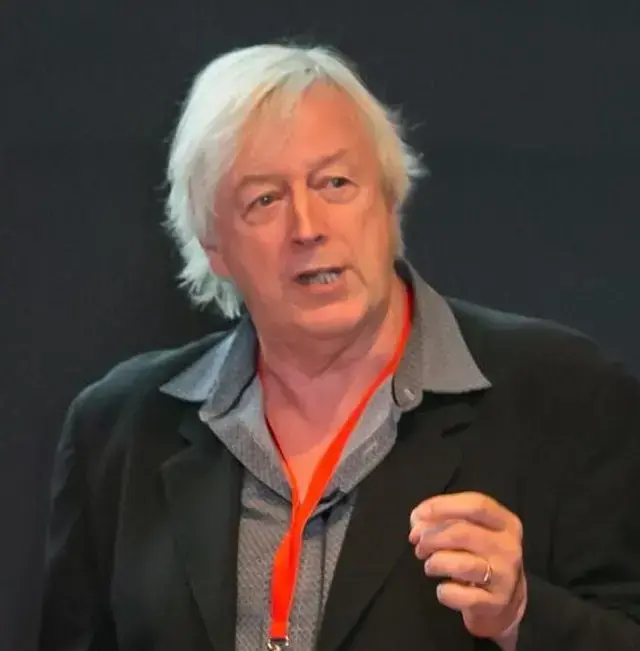Welcome to the art and science of positive thanking
Ken Burnett gives a taste of a brilliant upcoming book.
- Written by
- Ken Burnett
- Added
- September 01, 2019
This is a rare treat, a chance to review a completely new feat of publishing brilliance that I entirely endorse, from start to finish.*
It’s the brilliant first book of fundraising copywriting giant Lisa Sargent, the author of SOFII’s legendary Thank-You Letters Clinic and other articles, the most visited section of SOFII bar none, for years now.
Heads up, this book is not yet published, and I have a personal connection with it because I wrote the foreword. That’s how I know, positively, that it is so great, if you’re serious about how you do fundraising, for sure you’ll want your own copy and one each for all your team, too.
In fact, for this review I’m just going to reproduce that foreword, here and now. So you’ll be in no doubt why this book will matter so much to the future health of our for-change sector.
So here it is, the foreword to Thankology, by Lisa Sargent, to be published soon, in 2021. Watch SOFII for details, coming soon.
* NB: I wrote this before I had agreed to help Lisa to publish Thankology.

Foreword, by Ken Burnett.
Whoopee! Saying thank you has just got an ology. We should be so, so proud!
An ology is a really big thing in the UK and, well…everywhere. A few years back, in a campaign called ‘It’s you we answer to’, Britain’s telecommunications giant BT ran a popular series of television advertisements featuring a lovable but domineering grandmother called Beattie (BT, geddit?), using her telephone to keep in touch with her extended family. In one of these commercials, she rings her grandson Anthony, on a rather special day. The conversation went like this:
Beattie: Anthony? Oh, Anthony. Congratulations on your exam results!
Anthony (despondent): Grandma, …I failed.
Beattie (shocked): What d’you mean, you failed?
Anthony: I mean I failed. English, math, physics, geography, German, woodwork, art… I failed!
Beattie: You failed… everything? You didn’t get…anything?
Anthony: I passed pottery.
Beattie: Pottery? Pottery! Very useful, pottery is. People always need plates Anthony (silent pause). Er…, anything else?
Anthony: Sociology.
Beattie: An ology! (pause– sharp intake of breath) He gets an ology, and he says he’s failed! Anthony, you got an ology! You get an ology, you’re a scientist!
Anthony: Oh! Thanks Grandma!
Voice over explains the reassuring power of a phone call.
Beattie: Oh yes, it’s the teachers that are all wrong. You know, they can’t mark! A lot of them can’t see…
It went viral, before viral was even a thing.
So yes, now, thanks to Lisa Sargent, we campaigning fundraisers have… an ology. Wow! That is so, so special.
Why? What’s so special about Thankology?
Simple. Saying thank you properly is the best fundraising opportunity of them all, bar none.
It’s time we realised this. Time we elevated the subject, right up to where it belongs.
We need to consider it an ology. We need to respect it, study it, excel at it, to value it properly. This book does all that, and more.
You don’t believe me? Well, now you can find within these pages shedloads of vibrant, recent, highly copyable examples of the multiple benefits that thankology can bring.
When I started in fundraising (embarrassingly long ago, I confess), thanking donors was considered an expensive and tedious chore. I vividly remember struggling to persuade charities in the UK to even consider saying thank you nicely, to even say thank you at all. Thanking donors then was considered an inconvenient and costly burden that could quite easily be dispensed with. How short-sighted they were!
Of course not thanking someone who’s just given you a generous gift is downright rude. I mean, duh! Surely our mothers taught us that much? Not thanking a donor because their gift doesn’t match your concept of acceptable generosity is also downright rude. Not doing it quickly and effectively is…well, as well as rude it’s also stunningly myopic and plain downright foolish. Because in fundraising, saying thank you properly is a sure-fire route to riches.
Anyone who imagines that such a mundane, even dull and routine activity as saying thank you isn’t seriously effective and essential work needs their bumps feeling, and no mistake. Yet for sure, puffed-up, self-important organisations by the score will take just such a stance. More the fools, them. The real absurdity for fundraising outfits that don’t thank their donors properly and creatively is that they are so cutting off their own noses to spite their shiny little faces. Because, now we know, thanking properly pays. Big time!
Now through this book Thankology, Lisa Sargent shows us that even confirmed evangelists and enthusiasts for thanking have been massively underestimating the income and relationship-building potential of the natural, universal, so human act of saying a simple thank you. Or, in myriad variations, ‘welcome, well done, congratulations, you’ve made a difference, you are great’.
In my early years as a donor-focused fundraiser I feasted gloriously on the great ‘bibles’ of direct mail – the books and articles of Mal Warwick, Jerry Huntsinger, Denny Hatch and others. Real treasure troves, of course. But in all these I found very, very little that was useful on thank-you letters or on the skills and processes necessary for effective, creative thanking.
Now there is. Now, in this book, it’s all there in abundance.
· There wasn’t a library of copyable examples of delightful thank-you letters. Now there is.
· There certainly wasn’t any explanation of the benefits of thanking, or the techniques of testing how to thank properly. Now there is.
· Nor were there any revelations and insights on effective thanking over the phone. Now there is.
· Back then there was of course no analysis of digital thanking, or saying thanks via social media, or online, or by email. Now there is.
· For sure, no way then was there anything useful about using the insights of thankology successfully for in-memoriam givers, or for annual reports, or even in supporter newsletters. Now there is.
In fact, the subject Lisa so wisely terms ‘Thankology’ has been explored, explained, expanded and exposed here like never before. In this book you’re now holding, there’s all that and lots more besides.
· There’s how to explain and inspire others in your organisation so they’ll be as enthusiastic about thankology as you are.
· There’s how to reliably and consistently write the best ever heart-lifting, life-affirming and rewarding thank-you letters of all time.
· There’s how thankology can underpin and help you to build the very best donor/cause relationships – reliably.
· There’s how thankology is crucial, and priceless, if you wish to design and deliver the very best and most durable supporter experiences.
Chapter by chapter the author defines and describes the key milestones of what will be fundraising’s latest and perhaps, most lucrative science. Thankology doesn’t just teach you, it gives you real, concrete, copyable examples on almost every page. Plus, for good measure the author throws in lots of free extra bonuses too.
It’s a special privilege for me to write this foreword because the science, art and craft of thankology has its roots in the Lisa Sargent Thank-you Clinics on SOFII.org, that we jointly initiated a dozen or so years ago. To this day they are the most visited exhibits in the entire SOFII archives, bar none (SOFII is the Showcase of Fundraising Innovation and Inspiration, available free 24/7 on www.sofii.org). But in truth I’m also extra-honored because I can see this so accessible, easy to use tome, Thankology: a fundraiser’s guide to keeping your donors longer, and giving stronger, through gratitude could be the most significant, most immediately beneficial book for campaigning fundraisers in ages. Why? Well, we’ve known for decades that the favorite subject of people everywhere is, almost invariably, themselves. Almost anything that’s about them, that’s what, wherever they are, people find most appealing and most listenable-to. If it’s about themselves it is everyone’s most-loved topic of conversation, what they most love to hear and read about. Themselves. In this book, through the practice of thankology Lisa Sargent has mined this most human of human responses to set out how you, in your supporter communications, can access and apply what Lisa calls ‘the intoxicating brain-chemical bath of serotonin, dopamine, and oxytocin that science has proven you can spark with gratitude.’ Imagine that! Your attitude of gratitude can ignite all the very ingredients that you want to flood your donors’ brains, to make them feel terrific, special, appreciated, warm and generous towards your cause. Get your thankology right, and how powerful will that be?
When BT’s Beattie, her voice hushed with wonder and respect, said to her grandson Anthony, ‘You’ve got an ology,’ she wasn’t exaggerating or soft-soaping him, she was telling him to find and focus on the positives. My mother used to say to me, ‘Kenneth, positive things happen to positive thinkers’. I’ve never forgotten it. Beattie would have approved.
Now we can say, positive things happen to positive thankers. Because, well, we’ve got an ology. Thankology. By Lisa Sargent. We should be eternally grateful.
Publisher: TBA. Price: £xx/US$xx. Publication date: TBA
Full disclosure, this review is released pre-publication – the actual book will be published shortly. But I’m confident the publishers will accept advance orders and a short wait will only serve to increase anticipation.
Ken Burnett,
Suffolk, England
Originally drafted in February 2021
© Ken Burnett 2021


















